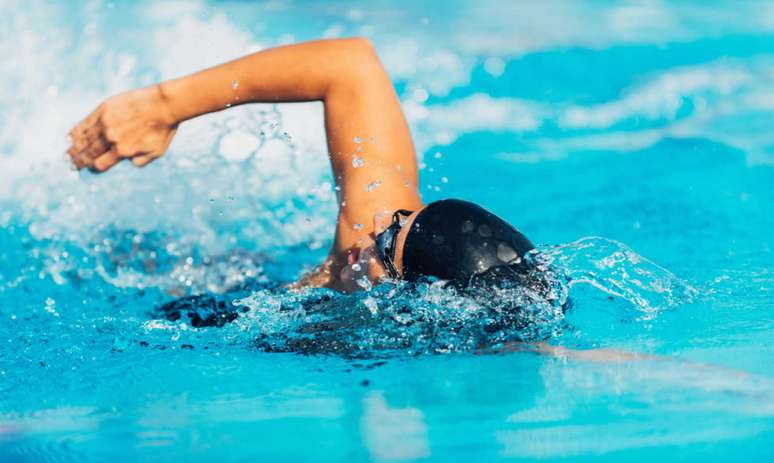In addition to strengthening muscles, swimming is associated with the prevention of diseases that are more common in old age.
The Brazilian population is ageing. As a result, the country’s age pyramid is changing. From a predominantly young population up until the 1980s, the country is currently consolidating itself as an adult nation. That is, most Brazilians are between 20 and 59 years old). By 2050, the country is expected to have a predominantly elderly population, IBGE estimates.
html[data-range=”xlarge”] figure image img.img-44c7a96b6c5fe512b70067e3ebef97333opoelnc { width: 774px; height: 463px; }HTML[data-range=”large”] figure image img.img-44c7a96b6c5fe512b70067e3ebef97333opoelnc { width: 548px; height: 328px; }HTML[data-range=”small”] figure image img.img-44c7a96b6c5fe512b70067e3ebef97333opoelnc, html[data-range=”medium”] figure image img.img-44c7a96b6c5fe512b70067e3ebef97333opoelnc { width: 564px; height: 337px; }
As the population ages, concern about health and well-being increases. To ensure healthy aging and quality of life, physical activity is a good way out, especially in the case of swimming.
The modality brings numerous benefits to people over the age of 60, who should observe how their bone and muscle health is going. After all, from this age on, diseases such as sarcopenia (decrease in muscle mass) and osteoporosis (decrease in bone density) become more common.
How is swimming related to healthy aging?
In addition to moving muscles and bones throughout the body, swimming is also a low-impact practice due to the damping caused by water. The aquatic environment also provides a greater sense of relaxation.
Another very positive point is that the modality improves flexibility and posture. This is because, in addition to strengthening your muscles, swimming strengthens your joints. These benefits also positively affect motor coordination and balance.
“For women entering menopause, the practice also helps regulate hormones, and for younger women, aquatic practices cause greater well-being even during periods of PMS,” comments Mônica Marques, technical director of Cia Athletica . She explains that swimming offers benefits not only for the body, but also for the mind.
“We’ve seen emerging research suggesting that swimming may provide unique brain stimulation, helping preserve memory, repair damage caused by stress, and build new connections in areas related to learning, including the adult brain,” he adds.
Other benefits
Since the benefits of swimming are distributed throughout the body, the practice also improves the functioning of the lungs and heart. Physical effort increases the capacity of the organs, as it also strengthens the muscles.
“Moreover, the activity causes an increase in blood circulation and oxygen absorption, contributing to the treatment and prevention of various pathologies related to the respiratory and cardiovascular systems. Those who practice swimming are less likely to develop asthma and bronchitis. that those who suffer from these problems see a significant improvement over time,” Mônica points out.
The expert points out that, whatever the sport chosen, it is necessary to take into account the preference of the practitioner, his characteristics and physical limits. Therefore, before starting a practice, it is important to carry out a physical assessment.
Source: Terra
Ben Stock is a lifestyle journalist and author at Gossipify. He writes about topics such as health, wellness, travel, food and home decor. He provides practical advice and inspiration to improve well-being, keeps readers up to date with latest lifestyle news and trends, known for his engaging writing style, in-depth analysis and unique perspectives.








